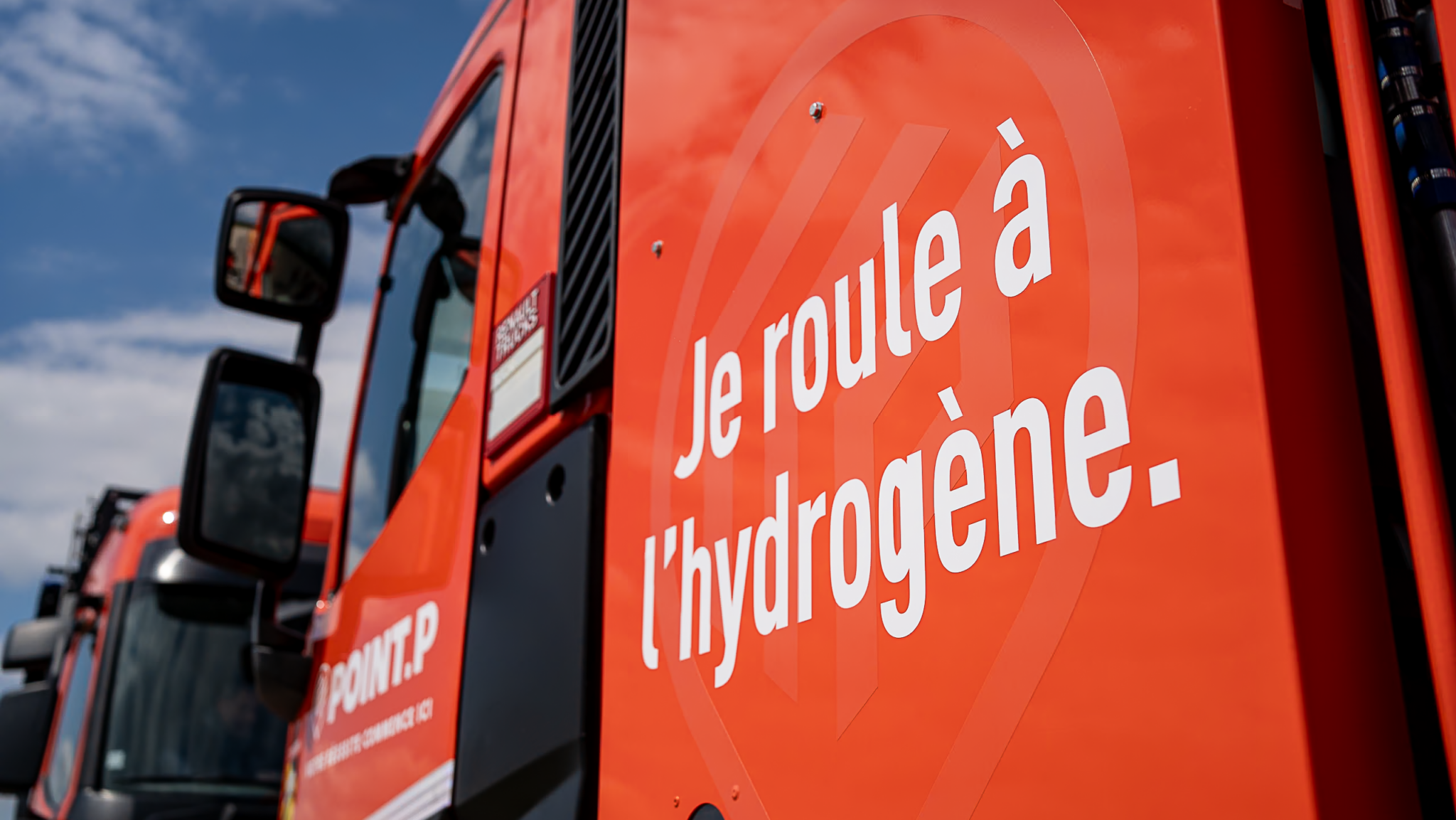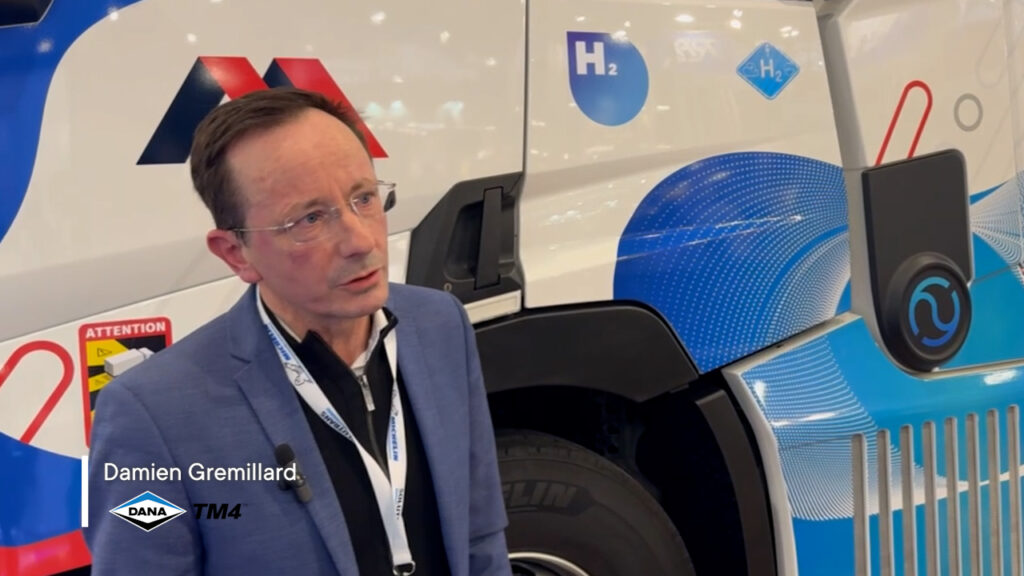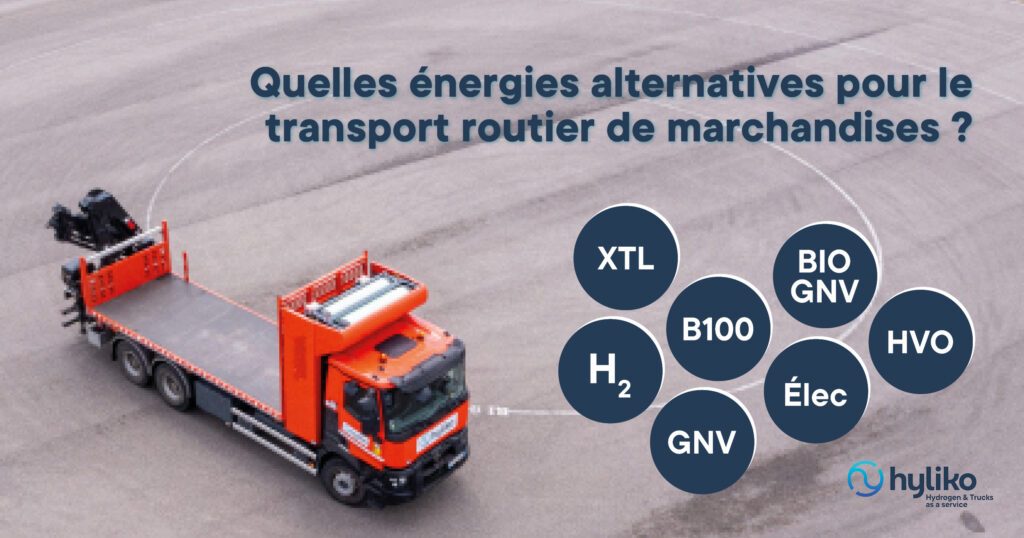Hyliko and POINT.P are taking a major step towards decarbonising heavy mobility. The first of its kind in France, Hyliko, the first zero-emission mobility platform for road haulage, has just put its first two retrofitted hydrogen trucks on the road for POINT.P, a subsidiary of the Saint-Gobain group, a leading player committed to decarbonising its transport operations.
Hyliko has been working since 2021 to offer zero-emission solutions, in particular by developing innovative techniques to convert diesel trucks into green hydrogen trucks through retrofitting. In France, more than 113.6 million tonnes of CO2 equivalent are emitted each year by the transport sector, representing 28.7% of national greenhouse gas emissions*. The stakes are high, and the responsibility of manufacturers is undeniable. Retrofitting is the most effective way of speeding up the transition to soft mobility, and it has won over the Saint-Gobain group subsidiary, which has embarked on a decarbonisation plan to convert its truck fleet to clean energy. Hydrogen was a natural choice to meet its operational constraints, and POINT.P has joined forces with Hyliko in this 100% carbon-free mobility initiative.
“We are very proud to be behind this major step forward for green mobility. This launch is a real game changer for the energy transition of heavy goods vehicles. Thanks to the support and commitment of our partners, we are entering a new era of zero-emission transport, complementing electric mobility and making no compromises on so-called “transition solutions”. I would particularly like to thank Mr Nicolas Godet, Chairman of POINT.P, and Mr Stéphane Zaouch, Head of Sales Transport Coordination at POINT.P, for their commitment to decarbonising transport, their initiative and their confidence. Together, we have risen to the technical, economic and human challenges that have enabled us to come up with a promising solution for the future of heavy-duty mobility.”
Ovarith Troeung, CEO of Hyliko
Hyliko is the start-up which, with its renowned partners such as Toyota Motor, Forsee Power and OPmobility, has taken up the challenge alongside POINT.P to design, assemble and homologate in less than two years a complete range of retrofitted trucks adapted to the main uses of the transport sector. It’s unprecedented, and it’s all down to French know-how. With the commercial launch by POINT.P of its first two hydrogen trucks, this technology is now available to the road haulage sector. The two vehicles – a 26-tonne flatbed crane operated by the Berto Group and a 44-tonne tractor, operated by Labatut Group – are the first of the 100 vehicles planned by POINT.P between now and 2030.
“This hydrogen retrofit project marks a decisive step in our decarbonisation approach, but also more broadly for the entire transport sector, which will benefit from this research and development work to accelerate its zero-emission energy transition. For POINT.P, this approach made sense in terms of our multi-energy decarbonisation strategy, which has already begun. By working closely with Hyliko and our partners Groupe Berto and Labatut LVI, we are demonstrating that the transition to zero-emission heavy-duty mobility is not only possible, but can be achieved rapidly when supported by a committed and ingenious collaboration.”
Stéphane Zaouch, Head of Sales Transport Coordination at POINT.P
With this breakthrough, Hyliko, POINT.P and their partners are demonstrating that another form of mobility is possible, one that is less polluting and just as efficient. These two trucks, which have a range of two days and a refuelling time of less than twenty minutes, perform in a similar way to diesel. What’s more, thanks to their hydrogen-powered engines, they limit noise pollution, a major issue for city centres, branches and customers’ homes where they will be travelling. Hyliko has opted for retrofitting because it is currently the best solution for rapidly converting the French transport sector and moving beyond the so-called “transition” energy stage. By encouraging the re-use of used trucks, retrofitting enables us to acquire a vehicle that complies with new regulations in a much shorter time than new trucks, while limiting the production of new components, and therefore our carbon footprint. As a result, contractors can quickly have “zero emission” trucks on the road, for the benefit of driver comfort. This is the start of the development of a French industrial sector aligned with a more virtuous and sovereign economy.


